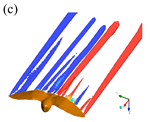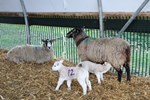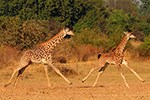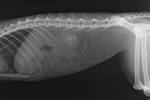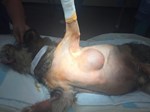Search - Research
231 - 240 of 285 results
-
Has Covid-19 continued to impact people’s decision-making when it comes to buying puppies?
The Royal Veterinary College launches national follow up survey, “Pandemic Puppies – The Next Generation”, to determine whether the changing factors around the puppy buying process, which influence canine welfare, remained in 2021. -
How gliding barn owls could be the key to improved flight of small aircraft
New research from the RVC shows potential to reduce drag Aeronautical engineers have long looked to birds to develop more efficient and aerodynamic designs. Thanks to a new study observing gliding barn owls by researchers at the Royal Veterinary College (RVC), there is now evidence that tail postures can minimise drag. -
New research from the RVC furthers understanding of the role of muscles and tendons
A new study from the Royal Veterinary College (RVC), has uncovered how muscles and tendons work together in order to transfer weight without exerting unnecessary energy. This research is an important step in better understanding the role of muscles … -
Leading the flock: The RVC launches new ‘Flockmaster’ Course to help sheep farmers increase their flock productivity and improve the health of their sheep
The Royal Veterinary College (RVC) has launched a new course for sheep farmers, shepherds, and smallholders to help them build knowledge and skills to protect and increase their flock productivity and improve the health of their sheep. Rearing …The Royal Veterinary College (RVC) has launched a new course for sheep farmers, shepherds, and …
-
Do long limbs really provide a leg up?
Musculoskeletal models reveal the impact of giraffe’s long limbs on its mobility. -
The RVC’s London BioScience Innovation Centre expands provision to Tribeca development
The London BioScience Innovation Centre (LBIC) – founded in 2000 and owned by the Royal Veterinary College (RVC) – will open a new 37,127 sq. ft. (GIA) state-of-the-art innovation centre at The Apex, one of five mixed-use buildings within the ‘ …The London BioScience Innovation Centre (LBIC) – founded in 2000 and owned by the Royal Veterinary …
-
RVC research finds cat breeds at highest risk of kidney stones
Researchers from the Royal Veterinary College (RVC) have found the breeds that place cats at a higher risk of developing kidney and ureter stones, namely Burmese, Persian, Ragdoll and Tonkinese breeds. The research is the first of its kind to … -
Miniature schnauzer – one of the most average dogs in the UK according to new research
Miniature schnauzer's averageness suggests that it could be considered as a good option of dog breed for aspiring owners -
UK dogs and their fatty lumps: finally the risks explained
Springer Spaniels, Dobermann Pinscher, Weimaraners and Labrador Retrievers: some of our most popular dog breeds in the UK are also the most susceptible to lipomas (also known as fatty masses or fatty lumps), according to the Royal Veterinary College … -
New dog-fighting research: The reasons why vets under-report cases in the UK
Nearly 15% of veterinary professionals suspected that they had treated at least one dog that was engaged in illegal dog fighting in 2015New pioneering research suggests that nearly 15% of veterinary professionals suspected that they …


